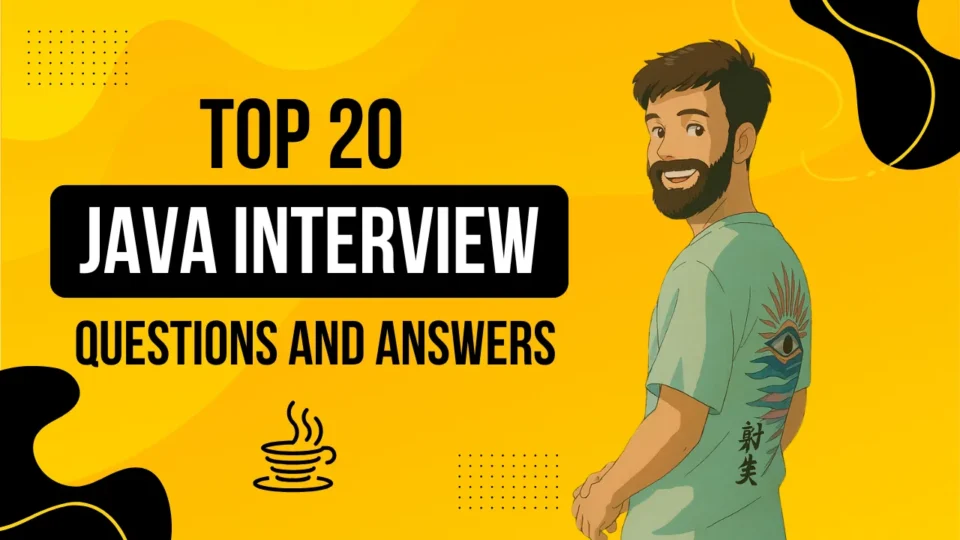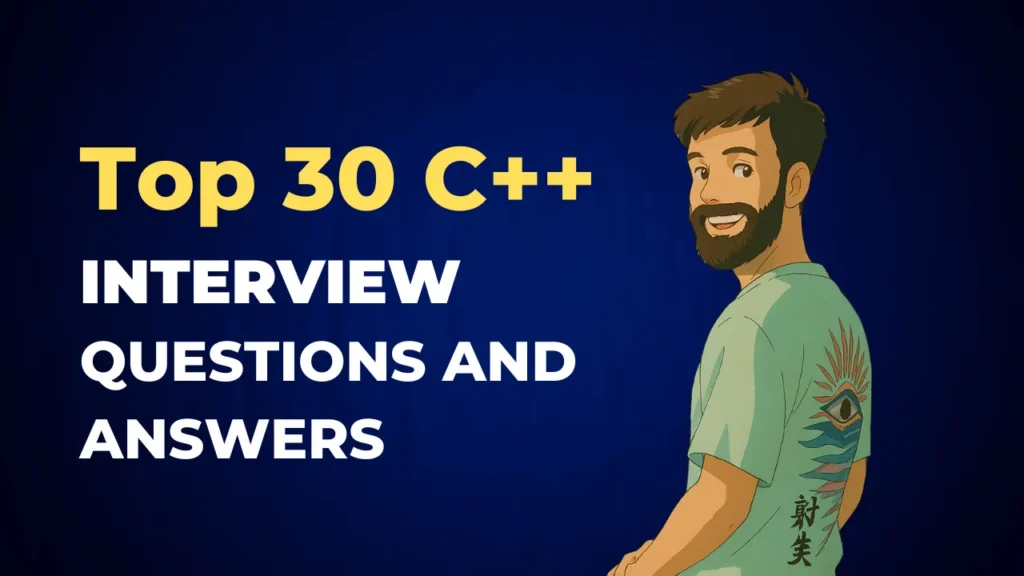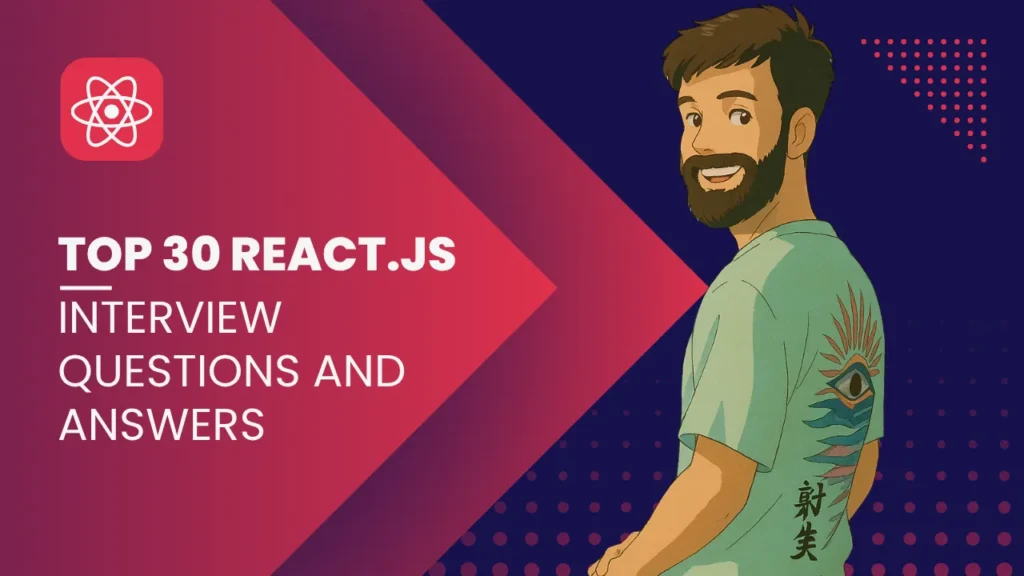Here are the Top 20 Java Interview Questions and Answers (2025 Updated), suitable for freshers and experienced developers:
✅ Core Java Interview Questions
1. What is Java?
Answer:
Java is a high-level, object-oriented programming language developed by Sun Microsystems (now owned by Oracle). It is platform-independent due to the JVM (Java Virtual Machine) and is used for building desktop, web, and mobile applications.
2. What are the features of Java?
Answer:
- Object-Oriented
- Platform-Independent
- Robust and Secure
- Multithreaded
- High Performance
- Distributed
3. What is the difference between JDK, JRE, and JVM?
| Component | Description |
|---|---|
| JDK | Java Development Kit – contains JRE + development tools |
| JRE | Java Runtime Environment – runs Java code |
| JVM | Java Virtual Machine – executes bytecode |
4. What is the difference between == and .equals()?
Answer:
==compares object references..equals()compares object content (can be overridden).
Top 20 Java Interview Questions and Answers
5. What is the difference between Stack and Heap memory in Java?
Answer:
- Stack: Stores method-level local variables, operates in LIFO.
- Heap: Stores objects and instance variables, shared across threads.
6. What is method overloading and overriding?
Answer:
- Overloading: Same method name, different parameters (compile-time).
- Overriding: Subclass redefines a parent class method (runtime).
7. What is constructor chaining?
Answer:
Constructor chaining is calling one constructor from another using this() or super().
8. What is a static keyword in Java?
Answer:
It denotes that a method or variable belongs to the class rather than instances of it.
9. What is the difference between an abstract class and an interface?
| Feature | Abstract Class | Interface |
|---|---|---|
| Methods | Can have both abstract and concrete methods | Only abstract methods (Java 7), default/static allowed (Java 8+) |
| Inheritance | Single inheritance | Multiple inheritance |
| Variables | Can have instance variables | Only constants (public static final) |
Top 20 Java Interview Questions and Answers
10. What is a final keyword in Java?
Answer:
- final variable: Value cannot be changed.
- final method: Cannot be overridden.
- final class: Cannot be extended.
✅ OOPs and Advanced Java Questions
11. Explain the four pillars of OOP.
Answer:
- Encapsulation – Hiding internal state using access modifiers.
- Abstraction – Hiding implementation details via abstract classes or interfaces.
- Inheritance – Code reuse by inheriting properties from another class.
- Polymorphism – Method overloading/overriding to perform different operations.
12. What are exceptions in Java?
Answer:
Exceptions are unwanted or unexpected events during program execution.
- Checked: Handled during compile-time (e.g., IOException).
- Unchecked: Occurs at runtime (e.g., NullPointerException).
13. What is the difference between throw and throws?
| Keyword | Purpose |
|---|---|
throw | Used to explicitly throw an exception |
throws | Declares exceptions in method signature |
14. What is the difference between ArrayList and LinkedList?
| Feature | ArrayList | LinkedList |
|---|---|---|
| Structure | Dynamic array | Doubly linked list |
| Access | Fast (index) | Slow (sequential) |
| Insertion/Deletion | Slow | Fast |
Top 20 Java Interview Questions and Answers
15. What is multithreading in Java?
Answer:
Multithreading is a process of executing multiple threads simultaneously. Java provides Thread class and Runnable interface to implement it.
16. What is synchronization in Java?
Answer:
Synchronization ensures only one thread accesses a block/method at a time to avoid race conditions. It’s done using the synchronized keyword.
17. What is a deadlock?
Answer:
Deadlock is a situation where two or more threads are waiting for each other to release resources, leading to a standstill.
18. What is garbage collection in Java?
Answer:
Garbage collection automatically removes unused objects to free up memory. It runs in the background using the gc() method.
19. What are lambda expressions?
Answer:
Introduced in Java 8, lambda expressions allow treating functionality as method arguments or passing behavior.
Syntax:
(parameter) -> { body }
20. What are streams in Java 8?
Answer:
Streams are used to process collections of objects in a functional style (map, filter, reduce). They support parallel operations.
Top 20 Java Interview Questions and Answers
Table of Contents
Top 20 Java Interview Questions and Answers
Top 20 Java Interview Questions and Answers




2 comments
[…] Top 20 Java Interview Questions and Answers […]
[…] Top 20 Java Interview Questions and Answers […]